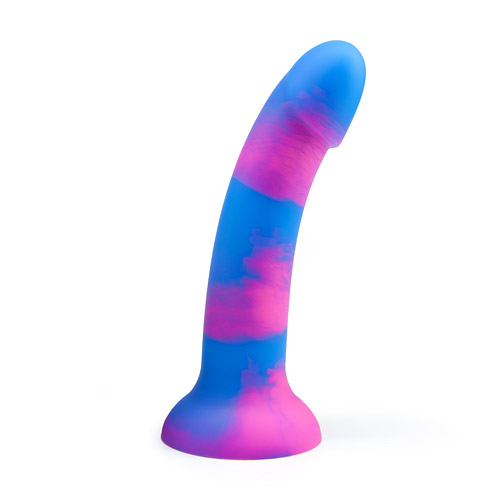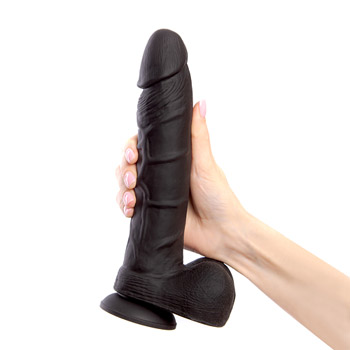Quote:
Originally posted by
novanilla
I saw the American version of the movie a while ago so it is a little fuzzy, but I have read all of the books. I agree that that scene was a lot to handle, though it did match the books. The rape, and video she takes of it, plays an important part in
...
more
I saw the American version of the movie a while ago so it is a little fuzzy, but I have read all of the books. I agree that that scene was a lot to handle, though it did match the books. The rape, and video she takes of it, plays an important part in the rest of the story in the 3rd book. As a standalone book or movie it was definitely not necessary to make it so intense and triggering. However in later books, I'm not sure if it had not been as intense (and really, those things DO happen in real life, so unfortunately, it is a reality) it would have had the same effect later. I'm trying hard to explain this without spoilers, and I feel like my response probably isn't doing you or the series any justice at all. With the least amount of spoilers possible...Blomkvist discovers that Salander is the center of a government conspiracy and the rape is part of this, but also is part of how she acquires justice for herself through the evidence.
Either way, I'm a feminist and survivor of sexual violence, and I think it is interesting that you bring up that male authors always use rape scenes. I read primarily female authors, not on purpose, but it just ends up that way because I like their books better and tend to come across them easier, so I don't actually know anything about that, but it would be a really interesting study. The only book aside from this one that I can remember reading offhand that had a rape scene was The Lovely Bones, and the author Alice Sebold also wrote a memoir in which she described how she was raped and her recovery/healing afterward. That scene in The Lovely Bones was very different from The Girl With the Dragon Tattoo since it was from the eyes of a 14-year-old and she was murdered.
Aside from a few questionable moments (including intensity of the rape, which although the rape was important to the plot later, I don't think it necessarily had to be that intense although upon reading it, the intensity was also part of the plot), I actually thought that The Girl With the Dragon Tattoo series had a number of feminist themes not limited to the typical "strong female character" thing that doesn't really mean it is feminist at all. The books discussed problems with reporting rapes and with the police in general, which is why she doesn't report. Female police officers talk about their unique position and problems in the force. It discusses the blame of women who are raped, portrayal of their stories as crazy, and combats these with strong characters (men and women) who fight for these women's rights. Salander's lawyer is a women's rights lawyer who deals a lot with domestic violence cases. The word feminist is used multiple times by multiple characters. There are polyamorous relationships and queer or bisexual relationships. There are characters who are sexually harassed and usage of the word sexist, chauvinist, and other feminist buzzwords are used by the author to describe the people involved. I think it definitely has redeeming qualities. However, I haven't seen the 2nd and 3rd movies so I am not sure how these things manifested themselves on screen.
less
I have read the books as well, and I really think that your response is fantastic. I honestly don't feel the need to add anything there myself. This is going to be a super long response as it is (just warning you guys now in case you want to skip over this - I have a lot to say on the subject.
).
The one thing that I /am/ going to say specifically about the film is that I liked the original film MUCH better than the Hollywood remake. Part of that is that I'm generally biased against remaking things to be English-speaking rather than just reading the subtitles (plus I don't much care for Daniel Craig), but a much bigger part is the fact that I thought that the original Lisbeth, Noomi Rapace, did a much better job of portraying the character and her strength.
I read a ton of murder mysteries and detective novels, however those I choose generally don't have rape scenes at all, whether written by males or females. That isn't to say that there aren't references to a victim having been violated, but among the novels that I read, there is not likely to be an actual detailing of the act. For me, I think that this is actually somewhat unfortunate, because it makes rape seem like it's only worth mentioning in passing, and while I don't enjoy reading about violence of any kind, I think that it's important that readers really understand what's happening instead of just accepting it. I do find that a lot of authors will place female characters at risk of being sexually assaulted so that they can be "rescued," however this is something I notice especially often in novels by female writers. I think that you are right in saying that males are more likely to detail a scene in which rape actually occurs, but a lot of woman authors use a close call as a plot device, or have a survivor of assault (where the act is just referenced) as their protagonist.
I have read a lot more graphic descriptions of murders than of anything else in these books, and quite frankly I'm sometimes shocked about the lack of upset about this. George RR Martin said the following in an interview: "I can describe in exquisite detail an axe entering a man's skull and splattering blood and brains. Not a peep. I describe a penis entering a vagina in equivalent detail, the world has ended." I think that he used rape as a vehicle for character development in a way that really did justice both to the character and survivors of sexual assault, and to me, Lisbeth's resolve and strength can be better appreciated because the viewers (or readers) are subjected to the actual act rather than having it simply have "happened." Rape doesn't just "happen." It's horrible, it makes us uncomfortable, and for a lot of people, seeing it makes the violation more "real" than simply having a character mention it.
As awful as it is, there are some people who just won't connect the words with the brutality and horror of the act, and this way, anyone watching is essentially forced to realize just what a character really went through when they use those words. I do realize that it's an unnecessarily graphic addition for those of us who can really understand the concept, but there's such desensitization among the general population that just saying that something happened is no longer "real enough" for a lot of viewers. There are entire films based on murder after murder occurring - I mean, there are whole genres dedicated to this sort of violence - yet I have never seen a film about a serial rapist along the same vein. I think that violence is entirely too acceptable to society as a whole, but that if it's being used as a plot device in a story, I think that graphic detail when it's unexpected (outside of the horror/slasher/torture porn genre) will help to keep people from becoming comfortable with the idea of violence having happened, and hopefully keep them from just accepting it.









